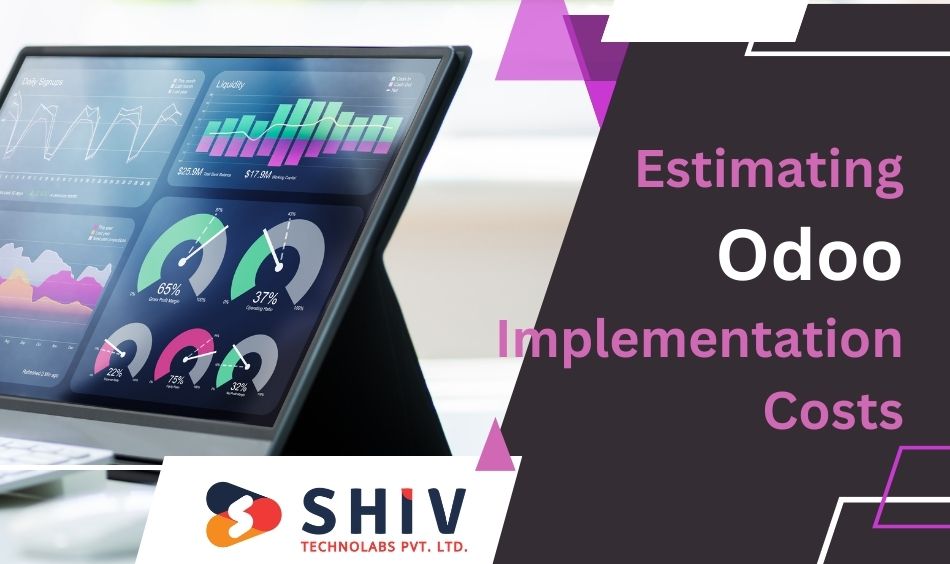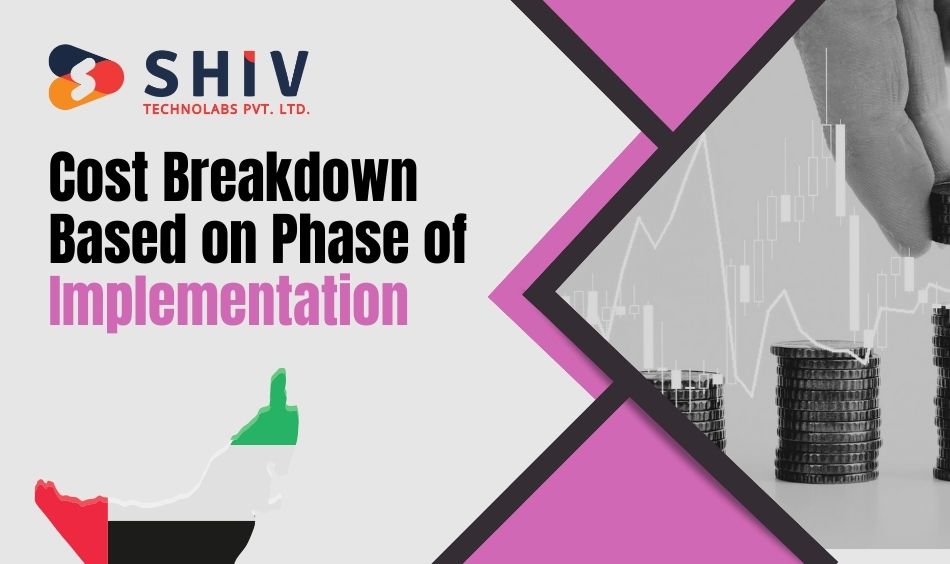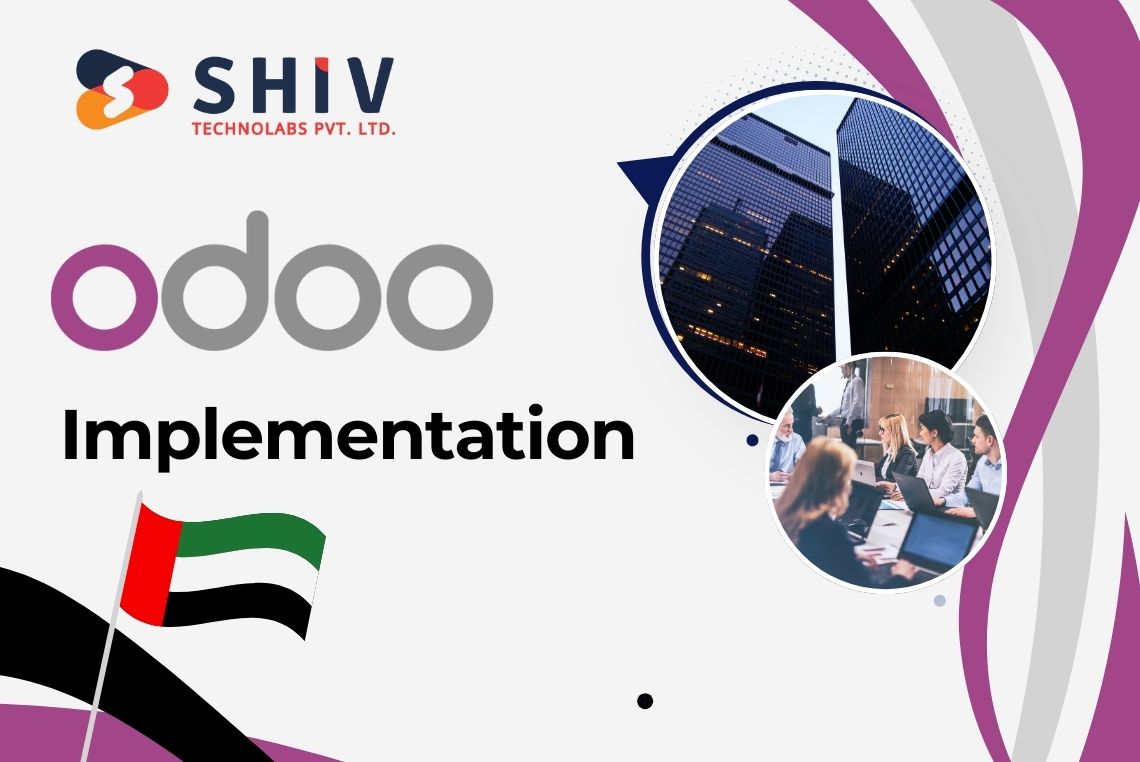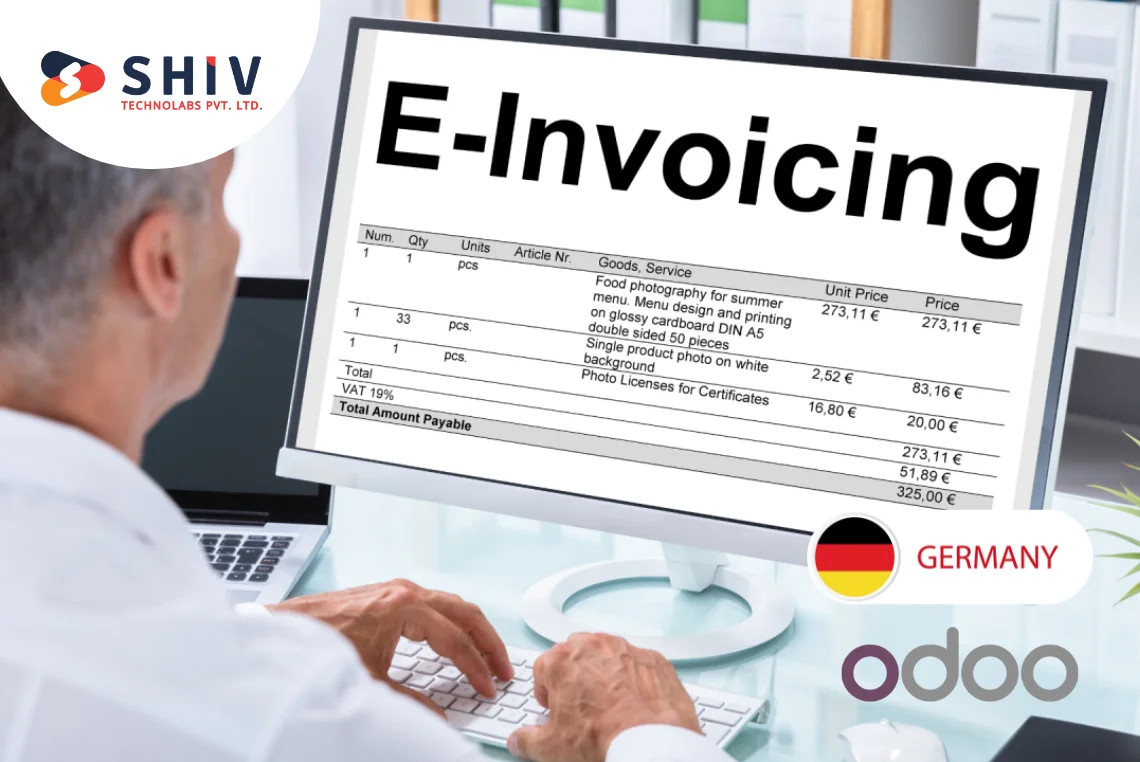Table of Contents
Odoo ERP Development has become an indispensable asset to businesses seeking to increase efficiency and gain better control of their processes. Being one of the most flexible ERP systems available, Odoo offers modules that can be tailored specifically for any organization’s individual requirements – but successful implementation requires careful planning and budgeting – this guide offers a detailed breakdown of costs associated with installing Odoo in UAE so businesses can make informed decisions for optimal success.
Odoo ERP has gained significant popularity worldwide, including in UAE, due to its extensive modular capabilities and cost-effective solutions. According to a report by Allied Market Research, the global ERP software market size was valued at $39.34 billion in 2019 and is projected to reach $86.30 billion by 2027, growing at a CAGR of 9.8% from 2020 to 2027. This growth is driven by the increasing demand for operational efficiency and transparency in business processes. The UAE, being a rapidly developing market with a strong emphasis on digital transformation, has seen a surge in the adoption of ERP systems like Odoo, particularly among SMEs looking to streamline their operations.
in UAE, the government’s push towards digitalization under initiatives like UAE Vision 2021 and Smart Dubai has further accelerated the adoption of ERP systems. A survey conducted by PwC found that 81% of UAE businesses are planning to increase their investment in digital technologies, with ERP systems being a top priority. The flexibility of Odoo ERP, which allows businesses to start with a basic set of applications and scale up as needed, makes it an attractive option for many organizations. Additionally, the availability of local Odoo development services in UAE ensures that businesses can customize their ERP solutions to meet specific regulatory and operational requirements, further driving the system’s popularity in the region.
Estimating Odoo Implementation Costs

Implementing Odoo ERP requires businesses to consider several cost factors when planning its implementation, which can vary widely based on business process requirements and complexity. A thorough understanding of these costs will allow companies to plan efficiently and avoid unexpected expenses; main components of Odoo implementation costs include initial setup fees, customization charges and ongoing support and maintenance expenses; these all have an effect on determining total investment needed for successful Odoo implementation.
# Initial Setup Costs
Initial setup costs are the cornerstone of any Odoo implementation project. They cover the basic elements necessary to get an Odoo ERP system up and running – licensing fees for Odoo can differ based on number of users and modules selected, customization costs can also be significant components. Furthermore, servers and networking equipment requirements could all factor into initial setup costs.
- Licensing Fees: Licensing fees are an integral component of initial setup costs. Odoo ERP offers different licensing options, from community to enterprise versions; subscription plans allow access to advanced features, updates, and professional support while the costs vary based on user count and modules selected. Businesses should carefully assess their needs before selecting an optimal licensing plan that offers maximum value for their investments.
- Customization Costs: Odoo ERP customization can help businesses meet the unique requirements of their businesses by adapting existing modules or developing new features as necessary to fit them with specific business processes or integrate third-party apps. Customization costs vary based on complexity and extent of modifications required. Hiring an experienced Odoo developer is crucial to ensure customizations are performed efficiently while simultaneously optimizing functionality and minimizing expenses.
- Hardware Requirements: Deploying an Odoo ERP system may require investment in physical infrastructure, including servers, storage devices, and networking gear to support it. The costs can depend on the size and scope of implementation. Businesses may consider cloud-based solutions that reduce upfront hardware costs while offering scalable options for future growth.
Factors Influencing Costs
Many variables can have an effect on the total cost of Odoo implementation, including scope and complexity of business processes as well as integration requirements with other systems. Recognizing and accounting for these elements will ensure accurate budgeting and planning.
# Scope of Implementation
The scope of an Odoo implementation project has a substantial effect on its total costs. A larger scope, including multiple modules and extensive customization will require greater investment from businesses. Businesses should accurately define their project scope in order to estimate costs accurately and avoid scope creep that may cause budget overruns.
# Complexity of Business Processes
Complex processes in any business can have an effect on the cost and effort required for Odoo implementation, including complex workflows, numerous data points and the need for advanced features or custom modules that can increase time and effort needed for implementation. It is crucial that an in-depth review is conducted of business processes in order to identify any potential obstacles and address them proactively.
# Integration Requirements
Integration between different systems is often essential for seamless operations, whether that means connecting with accounting software, CRM systems or e-commerce platforms. Integration costs will depend on compatibility issues as well as how extensive integration needs may be; working with an experienced Odoo software company in UAE will help ensure smooth and cost-effective integrations.
Also read : Unlock Growth: Odoo Development Services for Canadian Businesses
Cost Breakdown Based on Phase of Implementation

Breaking down implementation costs by phase can help provide clarity into where investment needs to be made and where resources should be distributed most effectively. The primary phases of Odoo implementation include planning, development and customization, training and support.
# Planning Phase Costs
A successful Odoo implementation starts with careful planning. Costs associated with this phase typically include project management, requirement analysis and system design services as well as working closely with Odoo developers to define project scope, identify key requirements and create an implementation plan.
# Cost of Development and Customization Options Available for Analysis
Development and customization involves tailoring Odoo ERP system to the unique requirements of the business, such as creating custom modules or configuring existing ones to meet these needs. Costs associated with this step depend on both its complexity and that of the Odoo development team.
# Training and Support Costs
Training and support are integral parts of an effective Odoo implementation. Training helps employees use the new system efficiently while ongoing support provides assistance with any problems that may arise post implementation. Training costs may include developing training materials, conducting sessions, providing user support as well as technical assistance or system maintenance costs.
Budget Strategies for Odoo Implementation
Effective budgeting is vital in order to effectively control the costs associated with Odoo implementation. Businesses should set realistic budgets that account for unexpected expenses and negotiate with implementation partners in order to maximize their return on investment.
# Establish a Realistic Budget
Establishing a realistic budget requires estimating all of the potential costs related to an Odoo implementation project, including initial setup fees, customization expenses and ongoing maintenance costs. An accurate budget helps set clear financial expectations while mitigating any unexpected surprises that might arise from this endeavor.
# Allocating Funds for Unexpected Expenses
Unexpected expenses are inevitable during any ERP implementation project, making a contingency fund essential in keeping the project on schedule when unexpected challenges arise. This helps ensure that expenses do not derail it completely.
# Negotiation With Implementation Partners
Businesses looking for professional Odoo development services in UAE may reap significant cost advantages by working with experienced providers. Businesses should negotiate with potential implementation partners to secure competitive rates; this may include reduced licensing fees or customization costs and/or bundle packages of services that deliver significant cost-savings benefits.
Cost-Saving Tips
Businesses can employ several strategies to lower the costs associated with Odoo implementation, including using open source modules, cloud solutions and tapping into internal resources.
# Utilizing Open Source Modules
Odoo provides businesses with access to an impressive library of open source modules that can be implemented without incurring additional licensing costs, significantly cutting implementation costs and customizing the modules to meet individual business needs without resorting to expensive custom development work.
# Selecting Cloud-Based Solutions
Cloud solutions offer a cost-effective alternative to traditional on-premise installations, eliminating upfront hardware investments while offering scalable options for growth. This can lead to substantial cost savings for smaller and mid-sized businesses alike.
# Capitalize Internal Resources
Utilizing internal resources can also help lower costs during implementation, including using in-house IT staff for basic configuration or training employees to handle routine system maintenance. By harnessing their own expertise, businesses can reduce reliance on outside consultants and overall implementation costs.
Also read : Driving Digital Transformation in USA Businesses through Odoo ERP
ROI Considerations
Calculating Return On Investment (ROI) Evaluating the return on investment (ROI) for Odoo implementation is key in assessing its cost-effectiveness and justifying initial expenditure to stakeholders. Recognizing long-term costs benefits helps demonstrate value of ERP systems such as Odoo.
# Calculating Return on Investment (ROI)
To determine ROI, businesses must compare the total costs associated with Odoo implementation with its expected benefits – which include increased efficiency, enhanced data accuracy and enhanced decision-making capabilities. By quantifying these advantages, businesses can determine both payback periods and overall financial impacts associated with its implementation.
# Long-Term Cost Benefits of Implementing Odoo
Odoo implementation can offer numerous long-term cost benefits that are substantial, including reduced operational costs, improved productivity, and enhanced resource management. Over time, the efficiencies gained from using an integrated ERP system may result in considerable savings and greater returns on investment.
Conclusion
Implementing an Odoo ERP system in UAE can bring many advantages for businesses. By understanding the costs involved, planning effectively, and working with experienced partners, businesses can achieve a successful implementation and realize all its potential.
Shiv Technolabs is a top Odoo software development firm in UAE, offering customized Odoo development services designed to assist businesses in improving their operations and reaching their goals. Their experienced Odoo developers deliver tailored solutions specifically tailored for every client to ensure an efficient yet cost-effective implementation of Odoo software.




















